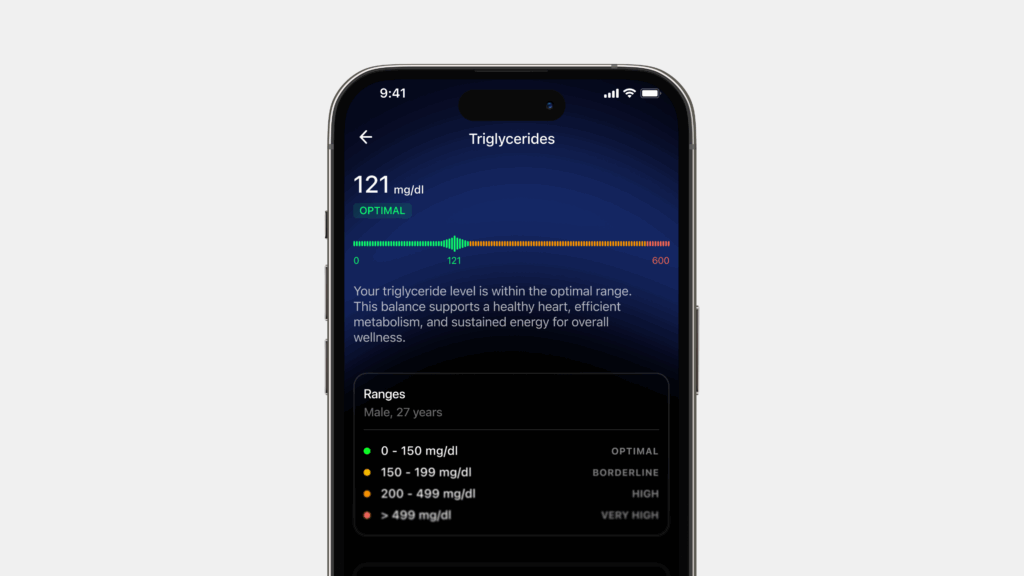When someone is able to lose weight easily or does not gain weight as quickly as other people with similar patterns of food consumption and exercise, etc., we tend to say that they have a ‘better metabolism’. By doing so, we wrongly assume that metabolism only means burning calories fast. In fact, metabolism is our body’s life force, and it is imperative to keep our metabolic health and fitness optimum to ensure longevity and overall well-being. Let’s see what metabolism really means and how to embark on a fulfilling metabolic fitness journey.
Highlights
- Metabolism is the chemical processes in our body, including the conversion of food to energy, which is required for running all cellular processes,
- Exercise and physical activity are imperative for metabolic fitness, which is directly related to how much we use our muscles. Even low levels of physical activity have a beneficial effect on metabolic fitness and the overall health of an individual,
- Keeping your glucose levels in balance also contributes to metabolic fitness.

What is Metabolism?
Metabolism refers to all the chemical processes in our body, including the conversion of food to energy, which is required for running all cellular processes. It involves everything from hormone production and balance to the creation of neurochemicals that function in the brain, digestion, sleep cycles and rhythms, and so much more.
Understanding how metabolic processes work within your body can provide insights into how food and exercise affect your health and longevity. The way energy is used within the body is a complex process. At the outset, this might seem as simple as a calorie-in/calorie-out equation, but there’s much more to it. Energy usage is affected by your hormonal pathways and, more specifically, by insulin. Let’s understand the larger role of this hormone.
What is insulin and why track it
Insulin is produced in the pancreas and is an anabolic hormone, which means that it promotes the storage and build-up of fuel within the body. Insulin signals our cells to pick up glucose from the blood to use as fuel. Any excess fuel either gets stored in the liver and muscles as glycogen or is in fat cells as triglycerides.
When cells in your muscles, fat and liver don’t respond well to insulin, you might end up developing insulin resistance. Insulin is unable to take up glucose from your blood easily, causing the pancreas to create more and more of it. This might lead to a build-up of fuel (glucose and triglycerides) in the body and potentially less efficient usage of glucose. Insulin resistance is essentially impaired insulin sensitivity.
It is important to track your insulin levels to ensure that it’s doing its job properly and saving us from imbalanced sugar levels in our bodies. One of the most efficient ways to measure insulin is to measure glucose values. Glucose values are affected by the insulin level in the body, making them an efficient way to monitor insulin values as well.
Glucose levels are affected by a variety of factors. Some of the important ones include the food you eat, your stress levels, when you eat (your metabolism slows down later in the day), your sleep quality, how much you exercise, etc. Being able to understand how your body’s glucose values trend could be a great way to understand what affects your metabolism in a positive way and what needs more optimization.
To put it simply, by getting insight into how your metabolism works, you can figure out when you are likely to have enough fuel in your body for maximal performance and gains as you exercise and work out. This window of performance differs for every individual based on their lifestyle, but you can optimize your lifestyle to align your fueling state and performance windows. This takes us to the concept of metabolic fitness: what it is and how to achieve it.
How to achieve metabolic fitness?

Metabolic fitness means when all the individual parts of our body—brain, heart, muscles, liver, lungs etc—are all fit and functioning well, and added together to give a complete picture of our total fitness. The idea of breaking fitness down into our individual parts gives us a new perspective on our health and provides us with new ways to improve it. The scope of metabolic fitness is wide and includes larger factors like longevity, strengthened immune system, maintenance of healthy weight and better physical endurance to relatively smaller, specific things like better sleep and smoother skin. Being metabolically unfit can cause a number of health problems, including obesity, diabetes, depression and anxiety, heart disease and chronic inflammation, among others.
Exercise and physical activity are imperative for metabolic fitness, which is directly related to how much we use our muscles. Even low levels of physical activity have a beneficial effect on metabolic fitness and the overall health of an individual. The amount of subcutaneous and visceral fat stored in the body depends on how much fat you use as your source of fuel. By determining the state of your metabolism, you can figure out whether your body is in storage mode or is primed for consuming fat as fuel. Remember, this is not a diet or a new protocol—this is a way for you to measure and understand your own body.
Additionally, keeping your glucose levels in balance also contributes to metabolic fitness. All of these tried and tested methods contribute toward blood sugar management and overall metabolic fitness. They include managing your carb intake and incorporating more fibre into your diet, reducing stress, practising portion control, getting enough sleep, eating more probiotic foods, and more.
Conclusion
Most diets and calorie restriction methods that many people tout do work and show results, but only when you follow them over a long period of time. If you’re not aiming to get fit for just the next three months or a year but want to improve your fitness standards for life and increase your longevity as a result, you have to take a sustainable approach to your fitness. For example, avoiding foods you like might give you the results you want in the shorter run, but the approach isn’t sustainable. Taking a slow, balanced approach to maintaining the health of individual parts of your body contributes to your overall metabolic fitness.
Disclaimer: The contents of this article are for general information and educational purposes only. It neither provides any medical advice nor intends to substitute professional medical opinion on the treatment, diagnosis, prevention or alleviation of any disease, disorder or disability. Always consult with your doctor or qualified healthcare professional about your health condition and/or concerns before undertaking a new healthcare regimen including making any dietary or lifestyle changes.
References








